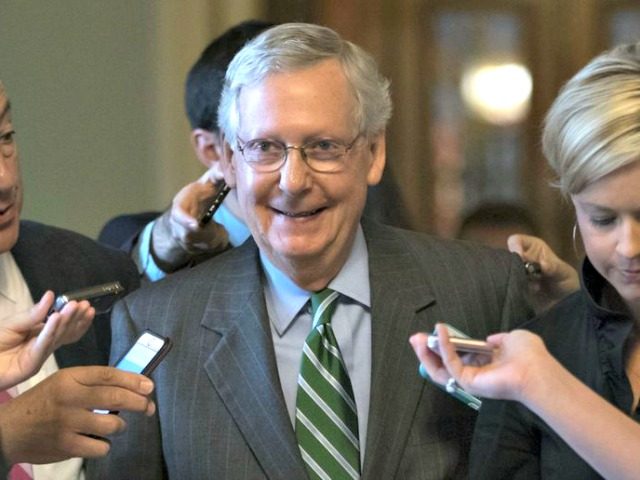On Thursday, Senate Majority Leader Mitch McConnell released the revised healthcare bill, the Better Care Reconciliation Act (BCRA), designed to bolster support from both moderate and conservative senators.
Here are some of the new reforms in Senator Mitch McConnell’s Better Care Reconciliation Act compared to the original version of the BCRA.
Sens. Cruz-Lee “Consumer Choice” Amendment
Sens. Ted Cruz (R-TX) and Mike Lee (R-UT) pushed for a consumer choice amendment that would allow health insurers to offer plans that do not comply with Obamacare regulations as long as they offer plans that do adhere to the rules.
The new BCRA includes a tweaked version of the Cruz amendment that stipulates if health insurers were to cover a “sufficient minimum coverage” on the Affordable Care Act (ACA) exchanges, then they could also offer more affordable health plans outside of the Obamacare exchanges — exempt from many Obamacare insurance regulations.
On Thursday, Lee said that he claims that Senate leadership included an amendment that resembles the Cruz amendment, not the exact amendment. He will reserve his judgment until he has a chance to review the bill.
Increased State Stabilization Funds
The revised BCRA adds $70 billion to the State Stabilization Fund, raising it to a total of $132 billion to help states prevent insurance market volatility and to help cover high-risk patients.
More Obamacare Taxes
The BCRA’s original bill repealed most of Obamacare’s taxes except for the “Cadillac tax” on high-cost employer sponsored health care plans. The BCRA will delay the Cadillac tax until 2026.
The new BCRA will also retain Obamacare’s net investment tax, the Medicare insurance tax, and the remuneration tax on executive compensation for health insurance executives. The BCRA will also provide $45 billion to combat the opioid crisis.
Catastrophic Coverage Plans
The BCRA will let Americans use their tax credits to purchase catastrophic healthcare plans. Obamacare only allowed Americans under the age of 30 purchase catastrophic healthcare plans on the Affordable Care Act exchanges. Americans can have the choice to purchase lower premium, higher deductible plans with less coverage.
Americans Can Use Health Savings Accounts for Premiums
Americans can use their Health Savings Accounts (HSAs) to pay for premiums. Some Senate aides speculate that the bill could cost around $60 billion because the federal government does not tax HSAs.
$45 Billion to Combat the Opioid Crisis
The BCRA will include $45 billion to combat the opioid crisis.
Changes to Medicaid
The Senate healthcare bill will not make any major changes to the original bill’s alterations to Medicaid. The BCRA will phase out Obamacare’s Medicaid expansion over the next seven years, cap Medicaid spending per capita, and allow states to block grant Medicaid spending.
The bill allows an exceptions to the per capita caps wherein states could lift the cap in the event of an emergency such as the Zika virus outbreak. Sen. Marco Rubio (R-FL) fought for the BCRA to include this amendment.
The House and Senate bill would allow states to impose work requirements for Medicaid on able-bodied adults without dependents.
What are the next steps?
The Congressional Budget Office (CBO) will release an analysis of the legislation sometime early next week. The CBO reported that the original BCRA would reduce the number of people insured by 22 million, reduce the deficit by $321 billion, and lower average premiums by 20 percent over the next ten years.
The CBO will most likely release their new score next Monday. Mitch McConnell will then hold the vote on the BCRA next week after the CBO releases their analysis.
Read the entire Better Care Reconciliation Act here.

COMMENTS
Please let us know if you're having issues with commenting.